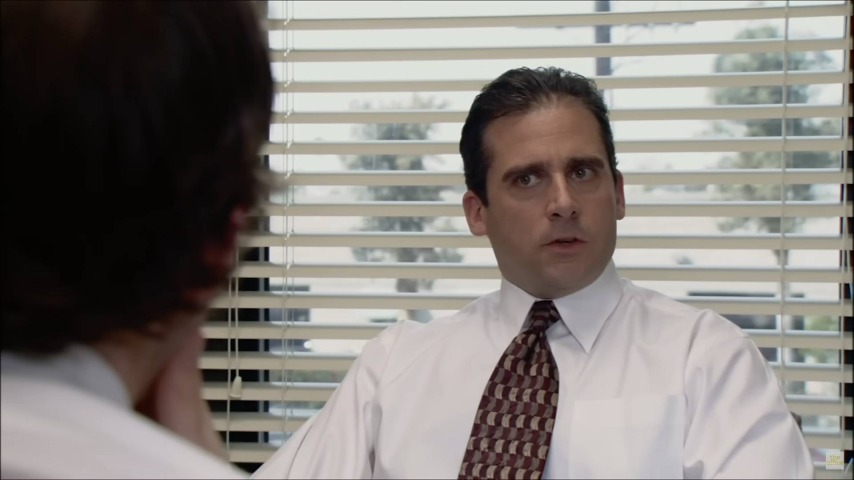Like many of our readers, we reacted to the realization that it’s been twenty years since the debut of NBC’s The Office with the same anger of discovering Toby had just returned from Costa Rica. Why, it feels like yesterday we were crowding around a 24-inch Toshiba to complain about how the British version was better. It’s a criticism that the show’s writers were well aware of. In The Hollywood Reporter‘s new oral history of The Office‘s first season, showrunner, director, and executive producer Greg Daniels explains how they needed to shut David Brent up to make Michael Scott sing.
The oral history takes readers from Mike Schur’s initial apprehension to how Paul Lieberstein accidentally became Michael Scott’s eternal foil. However, the most interesting part is Daniels detailing how he shaved David Brent’s rough edges down to make Michael Scott, channeling his experiences with turning an unlikable propane salesman into a beloved cartoon lead.
After The Office‘s first season landed with mixed reviews and modest ratings, Daniels decided that for American audiences to accept the show, he would have to wean off his reliance on Ricky Gervais and Stephen Merchant’s original. Learning from the failure of NBC’s Coupling, Daniels knew that remaking British episodes would mean the show’s death. “I was like, ‘We’ve got to do originals immediately,'” he tells the Reporter. “To me, the goal was, can we write completely original scripts that still are faithful to the tone of the British show?” He recognized that “Michael Scott was pretty heavily criticized by the show” and that Scott was “not a good person in the first show.”
“I was like, ‘OK, we were very faithful to the British show, and we are barely surviving.’ I decided to be less faithful to the British show and to incorporate more of what I had learned on King Of The Hill,” Daniels says. “In the very first iteration of that show, Hank Hill was a little bit more of an unlikable character, and I made various changes to articulate to myself what was unlikable about him and then fix it so that by the time the pilot aired, he was in good shape.”
Daniels explains that he made a list of eight things that would “change Michael in the minds of the audience.” Each of those points became the ending of an episode. “For instance, in ‘The Dundies,’ I was proving the point that the staff can complain about him, but when someone outside the staff picks on him, they defend him,” he continues. “It was basically nudging him from a person who is not part of your group, and you don’t really like them, to a person who you’re frustrated with often but is part of your group—he’s more of the frustrating uncle or something.”
Of course, making Michael Scott too likable eventually took the satirical sting out of the workplace comedy, leading to later seasons about nice things happening to nice people. But, perhaps, it never would’ve gotten that far had they kept Scott a racist his employees disliked instead of their racist that frequently endangered their safety. Nonetheless, the oral history is filled with interesting tidbits about The Office‘s earliest days, including which Simpsons episode convinced Ricky Gervais to let Daniels adapt his show, why Mike Schur agreed to make a show he was confident would fail, and how the ability to watch the show on an iPod changed its fortunes. However, the piece neglects the actual reason the show rebounded after season one: Steve Carell got a better haircut.
Read the rest at The Hollywood Reporter.









































